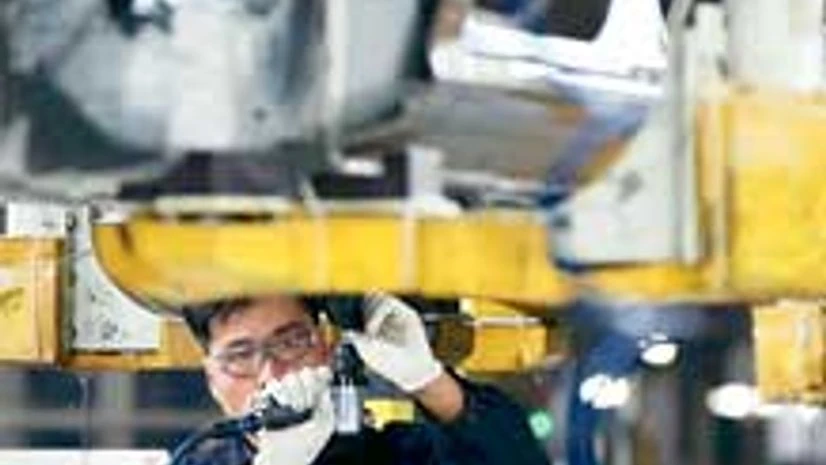Activity in China's vast manufacturing sector slowed to an 11-month low in July as new orders faltered and the job market darkened, a preliminary survey showed on Wednesday, suggesting the world's second-largest economy is still losing momentum.
The flash HSBC/Markit Purchasing Managers' Index fell to 47.7 this month from June's final reading of 48.2, marking a third straight month below the watershed 50 line which demarcates expansion of activities from contraction.
It was the weakest level since August 2012.
"The lower reading of the July HSBC Flash China Manufacturing PMI suggests a continuous slowdown in manufacturing sectors thanks to weaker new orders and faster destocking," said Hongbin Qu, chief China economist of HSBC.
"This adds more pressure on the labour market," he said.
A sub-index measuring employment slid to 47.3 in July, the weakest since March 2009. It stood at 47.6 in June and has been below 50 for four months in a row.
The new orders sub-index fell to its lowest level in 11 months, and stayed below 50 for a third straight month. Output declined to 10-month low and remained in contraction for a second month.
The HSBC/Markit Flash PMI is published about a week before the final reading, and is based on approximately 85-90% of total PMI survey responses each month. It is the earliest available indicator of monthly activity in the Chinese economy.
"As Beijing has recently stressed securing the minimum level of growth required to ensure stable employment, the flash PMI reinforces the need to introduce additional fine-tuning measures to stabilise growth," Qu said.
Economists say the new government believes an annual growth rate of 7% is needed to create enough jobs to maintain social stability, although the top leaders have never specified a figure.
China's economy grew 7.5% in the April-June period from a year earlier, the ninth quarter of slowdown in the past 10 quarters.
China's new leadership has said that it is prepared to tolerate lower growth and eschew stimulus in order to push a restructuring of the economy to wean it off a dependence on exports for growth and towards consumption.
It is fine-tuning policy, however, in response to the growth slowdown, and last week scrapped the floor on bank lending rates to help lower financial costs for companies.
President Xi Jinping said in remarks published on Tuesday that the key to dealing with various challenges confronting the economy was to deepen reforms in all aspects.
With no big stimulus measures in sight, economists in the latest Reuters poll predicted China's economy would grow 7.5% in 2013, hitting the government's target.

)
